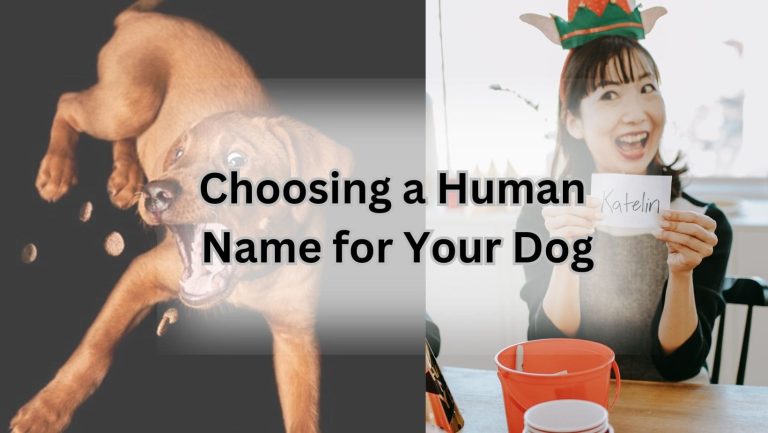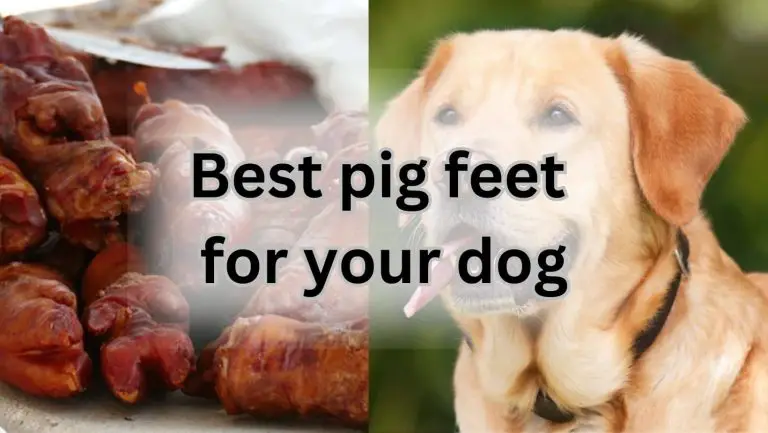Can Dogs Safely Chow Down on Pierogies? Find Out!
Are Pierogies Safe for Dogs
Can dogs eat pierogies? The short answer is no, it’s not recommended to feed your furry friend pierogies. While pierogies may be a delicious treat for us humans, they can pose potential risks to dogs if consumed.
Potential Risks of Feeding Pierogies to Dogs
Pierogies are typically filled with ingredients like onions, garlic, cheese, and sometimes even spices that can be harmful to dogs. Onions and garlic, for example, are toxic to dogs and can cause gastrointestinal upset, anemia, and other health issues. Additionally, the high fat content in pierogies can lead to pancreatitis in dogs.
Factors to Consider Before Giving Pierogies to Dogs
Before sharing your pierogies with your canine companion, consider their overall health, any dietary restrictions, and the ingredients in the pierogies. It’s always best to consult with your veterinarian before introducing any new foods to your dog’s diet.
Safe Alternatives to Pierogies for Dogs
If you’re looking to treat your dog to something special, there are plenty of dog-friendly alternatives to pierogies. You can make homemade dog treats using ingredients like pumpkin, sweet potatoes, carrots, and lean meats. These options are not only safer for your dog but also nutritious and delicious!
So, while pierogies may be off the menu for your furry friend, there are plenty of other tasty options to spoil them with. Keep your dog’s health and well-being in mind when choosing their treats, and remember, a happy and healthy pup is the best reward of all!
Nutritional Value of Pierogies for Dogs
Macronutrients in Pierogies
Now, let’s talk about the deliciousness that is pierogies and whether our furry friends can enjoy them too. Pierogies are a delightful treat filled with goodness, but are they suitable for our canine companions? Let’s dig into the nutritional value of pierogies for dogs.
Micronutrients in Pierogies
Pierogies are typically made with a dough filled with various ingredients like potatoes, cheese, meat, or veggies. While these fillings may sound tempting, it’s essential to consider how they can impact your dog’s diet. Dogs require a balanced diet rich in essential nutrients, and pierogies may not always meet their nutritional needs.
Impact of Pierogies on Dog’s Diet
If your dog happens to sneak a bite of a pierogi, it’s not the end of the world. However, feeding pierogies regularly to your furry friend may not be the best idea. The high-fat content in pierogies can lead to digestive issues and weight gain in dogs. Additionally, some pierogi fillings like onions or garlic can be toxic to dogs.
So, while sharing a small piece of pierogi with your dog as an occasional treat may be okay, it’s crucial to ensure that their primary diet consists of dog-friendly foods that meet their nutritional requirements. If you’re looking for alternative homemade treats for your pup, consider making dog-friendly pierogies with safe fillings like sweet potatoes or lean meats.
Can Dogs Eat Pierogies?
As a Canid Wild Life Lover with 20 years of experience, I’ve seen my fair share of curious pups eyeing up a plate of pierogies. Now, the burning question on every dog owner’s mind – can dogs eat pierogies? Let’s dig into this tasty topic and uncover the truth behind feeding these delicious dumplings to our furry friends.
How to Safely Feed Pierogies to Dogs
When it comes to sharing pierogies with your dog, there are a few key things to keep in mind to ensure their safety and well-being. First and foremost, moderation is key. While pierogies can be a tasty treat for your pup, they should not make up a significant portion of their diet.
Proper Serving Size for Dogs
It’s important to remember that pierogies are typically high in carbs and fats, which can lead to weight gain and digestive issues if consumed in excess. Stick to small portions and consider cutting them into bite-sized pieces for your dog to enjoy without overindulging.
Cooking Methods for Dogs
When preparing pierogies for your dog, opt for healthier cooking methods like boiling or baking instead of frying. This will help reduce the amount of added fats and calories, making them a more suitable snack for your canine companion.
Monitoring Dog’s Reaction to Pierogies
Keep a close eye on your dog after feeding them pierogies for any signs of digestive upset or allergic reactions. If your pup experiences any discomfort, it’s best to avoid feeding them pierogies in the future and consult with your veterinarian.
So, can dogs eat pierogies? While they can enjoy a small taste every now and then, it’s best to stick to dog-friendly treats and foods to ensure their health and happiness. Remember, a happy pup is a healthy pup!
Health Benefits of Pierogies for Dogs
So, you’re wondering if your furry friend can indulge in some delicious pierogies, huh? Well, let’s dive into the potential benefits of sharing this tasty treat with your canine companion!
Potential Benefits of Pierogies for Dogs
While pierogies may not be a staple in a dog’s diet, they can offer some nutritional benefits when given in moderation. These dumplings are typically filled with ingredients like potatoes, cheese, and veggies, which can provide your pup with essential vitamins and minerals.
Nutritional Benefits of Pierogies for Dogs
Pierogies can be a good source of carbohydrates, protein, and fiber for your dog. The potatoes in pierogies are a great source of energy, while the cheese can offer some protein. Plus, if the pierogies are filled with veggies, your dog can benefit from added vitamins and minerals.
Incorporating Pierogies into Dog’s Diet
If you decide to share some pierogies with your dog, make sure they are plain and not filled with any ingredients that could be harmful to them, like onions or garlic. It’s best to offer pierogies as an occasional treat and not as a regular part of their diet to avoid any digestive issues.
Remember, every dog is different, so it’s essential to monitor how your pup reacts to pierogies. If you notice any signs of stomach upset or allergies, it’s best to avoid feeding them this tasty treat in the future.
So, next time you’re enjoying some pierogies, feel free to share a small bite with your furry friend. Just make sure it’s a safe and enjoyable experience for both of you!
Risks of Feeding Pierogies to Dogs
Digestive Issues in Dogs
While pierogies may seem like a tasty treat to share with your furry friend, they can actually cause digestive issues in dogs. The rich and heavy ingredients in pierogies, such as potatoes and cheese, can be difficult for dogs to digest, leading to stomach upset, bloating, and even diarrhea. So, it’s best to avoid feeding your pup these savory delights.
Allergic Reactions in Dogs
Another risk of feeding pierogies to dogs is the potential for allergic reactions. Some dogs may be sensitive or allergic to certain ingredients commonly found in pierogies, such as dairy or gluten. If your dog experiences any signs of an allergic reaction, such as itching, swelling, or gastrointestinal upset, it’s important to consult with your veterinarian immediately.
Weight Management Concerns for Dogs
Pierogies are typically high in calories and fat, which can contribute to weight gain and obesity in dogs if consumed regularly. Just like humans, dogs need to maintain a healthy weight to prevent various health issues, so it’s essential to be mindful of the treats and snacks you offer them. Opt for healthier alternatives that are specifically designed for canine consumption to keep your pup in tip-top shape.
Can Dogs Eat Different Types of Pierogies
As a Canid Wild Life Lover with 20 years of experience, you might be wondering if it’s safe to share your favorite pierogies with your furry friend. Let’s explore if dogs can indulge in these delicious treats!
Cheese Pierogies for Dogs
Cheese pierogies are a popular choice among humans, but can dogs enjoy them too? While cheese is generally safe for dogs in moderation, it’s best to avoid feeding them cheesy pierogies. Some dogs may be lactose intolerant or have trouble digesting dairy products, which could lead to an upset stomach or diarrhea. It’s always better to err on the side of caution when it comes to sharing cheesy treats with your pup.
Potato Pierogies for Dogs
Potato pierogies are a classic comfort food, but are they suitable for your canine companion? Potatoes are safe for dogs to eat, as long as they are cooked and served plain. However, pierogies often contain additional ingredients like butter, onions, or garlic, which can be harmful to dogs. If you want to treat your dog to some potato goodness, consider making them a homemade version without any potentially harmful additives.
Meat Pierogies for Dogs
Meat pierogies may seem like a tempting treat for your dog, but are they safe to share? While dogs can consume cooked meat in moderation, it’s essential to check the ingredients in the pierogies. Some seasonings or fillings, like onions or garlic, can be toxic to dogs. If you want to give your dog a meaty snack, opt for plain cooked meat without any added spices or seasonings.
Remember, when it comes to sharing human food with your furry friend, it’s crucial to prioritize their health and well-being. While pierogies may be a delightful treat for you, it’s best to stick to dog-friendly snacks to ensure your pup stays happy and healthy!
Consulting a Veterinarian Before Feeding Pierogies to Dogs
So, you’re wondering if your furry friend can indulge in some delicious pierogies, huh? Well, before you start serving up a plate full of these tasty treats to your canine companion, it’s crucial to consult a veterinarian first. Trust me, your vet knows best when it comes to your dog’s diet!
Importance of Veterinary Approval
Your veterinarian can provide personalized recommendations based on your dog’s specific needs and dietary requirements. They’ll consider factors like your dog’s age, size, weight, and any existing health conditions before giving the green light on feeding pierogies.
Customized Diet Recommendations for Dogs
Veterinarians can offer tailored advice on what human foods are safe for dogs to consume. While pierogies may seem harmless, some ingredients like onions or garlic commonly found in pierogi fillings can be toxic to dogs. Your vet can steer you in the right direction to ensure your dog’s health and safety.
Professional Advice on Feeding Pierogies to Dogs
Before you start whipping up a batch of dog-friendly pierogies, seek guidance from your vet on how to introduce new foods into your dog’s diet. They can provide insights on portion sizes, frequency of treats, and any potential allergic reactions to watch out for.
Remember, your veterinarian is like the doggy diet guru, so always consult them before making any significant changes to your pup’s menu. It’s better to be safe than sorry when it comes to your furry friend’s well-being!
Monitoring Dog’s Health After Eating Pierogies
So, you’ve decided to treat your furry friend to some delicious pierogies, but now you’re wondering how to keep an eye on their health afterward. Let’s dive into the signs you should watch out for and the potential effects of feeding pierogies to your beloved pup.
Signs of Digestive Upset in Dogs
If your dog starts displaying signs of digestive upset after indulging in pierogies, such as vomiting, diarrhea, or excessive gas, it’s essential to monitor them closely. Keep an eye on their bathroom habits and overall behavior to ensure they are feeling okay.
Allergic Reactions in Dogs
Just like humans, dogs can also have food allergies. If you notice any signs of an allergic reaction, such as itching, swelling, or difficulty breathing, it’s crucial to seek immediate veterinary attention. Always be cautious when introducing new foods to your dog’s diet.
Long-term Effects of Feeding Pierogies to Dogs
While an occasional pierogi treat may not harm your dog, feeding them regularly can lead to weight gain and potential health issues. Keep an eye on your dog’s weight and overall well-being to ensure they stay healthy and happy.
Remember, moderation is key when it comes to treating your dog to human foods like pierogies. Keep a close eye on their health and behavior, and always consult with your veterinarian if you have any concerns. After all, a happy and healthy pup is a recipe for a paw-some life!
Alternatives to Pierogies for Dogs
Dog-Friendly Foods to Replace Pierogies
If you’re wondering whether dogs can eat pierogies, the answer is a bit complicated. While a bite or two might not harm your furry friend, it’s best to steer clear of feeding them this delicious Polish treat regularly. Instead, opt for dog-friendly foods like cooked lean meats, fruits, and vegetables. Your pup will thank you for the tasty and nutritious alternatives!
Homemade Treat Options for Dogs
If you enjoy cooking for your canine companion, why not whip up some homemade treats? Skip the pierogies and bake some dog-friendly goodies using ingredients like pumpkin, peanut butter, and oats. Your dog will drool over these homemade treats, and you’ll have peace of mind knowing exactly what’s in them.
Commercial Dog Treats as Alternatives
For those days when you’re short on time or energy, commercial dog treats are a convenient option. Look for high-quality treats made with wholesome ingredients that are safe for your dog to enjoy. Whether it’s crunchy biscuits or chewy snacks, there are plenty of alternatives to pierogies that your pup will love.
So, while pierogies may be off the menu for your dog, there are plenty of delicious and safe alternatives to keep their taste buds happy. From homemade treats to commercial options, there’s no shortage of tasty snacks to spoil your furry friend with. Just remember to always prioritize your dog’s health and well-being when it comes to feeding them, and you’ll both be happier for it!
Conclusion
So, can dogs eat pierogies? While it may be tempting to share this delicious treat with your furry friend, it’s important to do so in moderation and with caution. Pierogies can be safe for dogs to eat as an occasional treat, as long as they are plain, without any harmful ingredients like onions or garlic. Remember, your dog’s diet should primarily consist of high-quality dog food that meets their nutritional needs. If you decide to give your dog pierogies, make sure to consult with your veterinarian first to ensure it’s safe for your specific pup. Always monitor your dog for any adverse reactions after feeding them pierogies.
Ultimately, the key to a happy and healthy dog is a balanced diet that is tailored to their individual needs. While pierogies can be a fun and tasty addition to your dog’s diet, they should not replace essential nutrients provided by their regular dog food. Treat your pup to a pierogi every now and then, but remember that their well-being comes first. With the right approach, you can safely enjoy pierogies with your canine companion without any worries.






